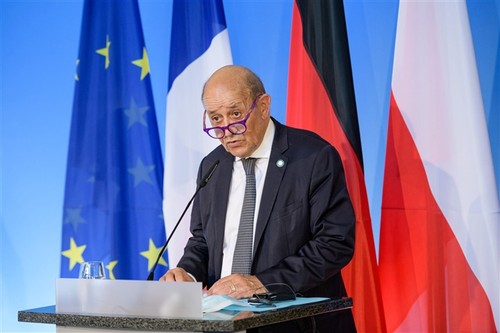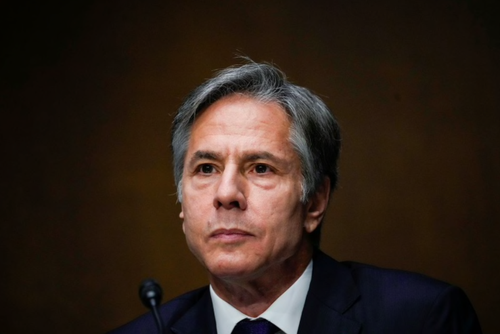 French Foreign Minister Jean-Yves Le Drian (Reuters) French Foreign Minister Jean-Yves Le Drian (Reuters) |
Australia’s agreement with the US and the UK spells the end for the contract it signed with France, who just lost a deal to sell fighter jets to Switzerland three months ago. These two setbacks come at a sensitive time, with France’s presidential election approaching next April. France has reacted with outrage.
France goes mad, US seeks assurance
When AUKUS was announced last Thursday, French officials publicly expressed their outrage, calling the pact a betrayal of trust. In an interview on Franceinfo radio, French Foreign Minister Jean-Yves Le Drian said this is not something allies do to each other. On Friday France recalled its ambassadors from Washington and Canberra “for consultations”, marking the most serious setback in its relations with the US and Australia in decades.
French Defense Minister Florence Parly cancelled a bilateral meeting with British Defense Secretary Ben Wallace scheduled to take place this week. Senator Jean-Luc Melanchon, a French presidential candidate, called for France to “reassert its sovereignty” and withdraw from the NATO defense alliance.
On Monday European Commission President Ursula von der Leyen issued her first reaction, saying that a lot of open questions about AUKUS need to be answered. She said an EU member country has been treated in a way that is not acceptable.
 US Secretary of State Antony Blinken (Reuters) US Secretary of State Antony Blinken (Reuters) |
To calm French fury, US Secretary of State Antony Blinken said France is still a vital partner in the US’s Asia strategy and “there is no regional divide separating the interests of our Atlantic and our Pacific partners."
Gabriel Attal, a spokesperson for the French President’s Office, said President Joe Biden will have a phone conversation with French President Emmanuel Macron in the next few days to clarify the issue.
Difficult situation for both sides
Analysts say France, who will assume the European Council’s presidency on January 1, 2022, will suffer a huge economic loss as well as a loss of national prestige from the AUKUS deal.
French leaders are under pressure now to find an appropriate reaction. France made some drastic responses in the past. In 1966, it withdrew from NATO Command (but not from NATO), forcing NATO to move its headquarters from Paris to Belgium. Last year, it temporarily pulled out of a NATO navigation operation due to a disagreement with Turkey.
This time, an overreaction by France could harm the West’s Pacific strategy. The EU and NATO surely don’t welcome that scenario. President Macron has not commented yet on the situation, which means he is cautiously considering his best course of action.
The reaction of France and the EU could threaten Biden’s shift to Asia and efforts to strengthen the US’s Pacific relations, and undercut the steps Biden has taken to improve the US’s relations with its EU allies, which were damaged by the Trump administration’s demand that the EU increase its contributions to the NATO budget and its decision to withdraw the US from several multilateral agreements. The US’s Strategic Shift in Asia has repeatedly insisted on the vital role of its EU allies and urged their full cooperation.
There has been a call on the US, France, the EU and important partners like Japan, Australia, and India to find a way to ease the tension and focus on their shared goals, particularly a free and open Indo-Pacific.
Admiral Rob Bauer, Chair of the NATO Military Committee, said on Saturday that French anger with the US and Australia is not likely to have an impact on military cooperation within the alliance.